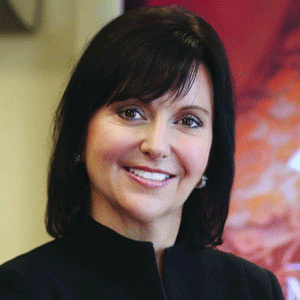THANK YOU FOR SUBSCRIBING

Why Peer-to-Peer (P2P) or the 'ShareEconomy' May not Always Translate to all Sectors of Travel
Tony Carne, General Manager, Urban Adventures


Tony Carne, General Manager, Urban Adventures
The past 8 years or so has been a revolution in the travel industry. And, there is no doubt about the new disruptive models that have come in and totally smashed their way right onto centre stage. In just 8 years, Airbnb is inthe top 4 in online travel businesses. Such is the power of a truly disruptive model backed by a couple of billion dollars in investment money. UBER, while often thrown in the travel-bucket,is probably less about ‘travel’ and more about transport, but again it took a similar idea of a peer-to-peer market place and is obviously killing it. Interestingly, it is also the new battle ground in which Airbnb have decided to play,so it gives us a prime example to look at and witness what the chance of success might be. The best place to start is to examine why Airbnb have been successful in accommodation, and then see if we can apply the same principles to toursand activities–and verify if we come out with the same answer. When starting any new venture, as a start-up’s founder you should generally be asking the question,‘Can my solution be 10X better or 10X cheaper, or in a perfect storm, both?’ Whilst I don’t think Airbnb achieved either, they probably got a 5X on both and that, as we’ve seen, is enough."
Currently, the genius of the share economy (a side from some how getting that moniker to stick, when in fact it is a super venture-backed business where the big ‘share’ consideration is how many you’ve got and what you’ll get back for those) is that it makes use of under utilised assets for the benefit of the owner of the asset.
"The opportunity cost on someone’s time is not the same as your spare bedroom"
In turn, in the case of accommodation, those vacant rooms are often wonderful alternatives to hotels. Until now, they have also been significantly cheaper than hotels although there is some evidence of that gap diminishing now. The product/market fit was there fore bang on. ‘Better product and better price.’ UBER start edit in a similar way.
Let’s now transfer that same thinking to tours and activities. The first and biggest point here is what the redundant asset is in play. It is some one’s time. The opportunity cost on some one’s time is not the same as your spare bedroom–which basically doesn’t have an economic alternative use. In this case, UBER becomes more instructive because apart from having your vehicle sitting idle, your time is also involved here. Now, would you prefer to be gambling your time on getting rides or perhaps showing people through your favourite dive bars? No contest there. All that needs to be worked out then is: ‘Will I make as much as if I were out doing the UBER thing?’ And this is where the model begins to fall down.
Airbnb experiences have opened at around $200USD. That is $160 in the pocket of the experience giver, which is less than any taxes (if they are so inclined) and money transfer fees. Is $160 for 3 hours enough? That is up to the individual to decide–but worth noting, what happens if they get a last minute offer of $200 to do some thing else? What happens then? Do they stick to their commitment with Airbnb? Where does the loyalty lie? What is the stick Airbnb have to stop this type of non-experience? Is it just a poor review? Is that enough when they’ve invested in making a Hollywood- style video and creating an old-school poster for this experience? Or is that just the risk worth taking? Lots of questions there.
More than this, however, the question that has to be asked is, is the experience 10X better or 10X cheaper or 5X of both? It definitely isn’t cheaper than other options a tourist can spend their time and money on, so we are down to just better. Experiences aren’t an imperative like a roof over your head or where you need to be. With an untrained and some what itinerant workforce, will it be better than a professionally run experience? Like beauty, experience is in the eye of the beholder but when it is also expensive, expectations are like wise high and this is a high volume, low transaction value game so you can’t afford many mis steps along the way.
I've already said that Airbnb won't necessarily fail here because for me, this is about increasing basket sizes of an existing (and adoring) audience prior to an IPO. That audience might be little more for giving, but I wouldn’t recommend any one else trying this at home.
Weekly Brief
I agree We use cookies on this website to enhance your user experience. By clicking any link on this page you are giving your consent for us to set cookies. More info
Read Also












